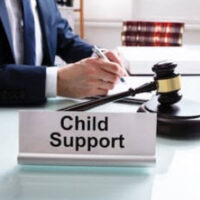What Happens if You Don’t Pay Child Support?

In a divorce or the end of a relationship where children are involved, child custody and child support are two issues that will arise. If one parent has primary physical custody of the child, then the other parent will typically be ordered by the court to pay child support. This monthly payment is based on the parent’s income.
Unfortunately, many parents do not receive child support payments on time. This much-needed money often arrives late or not at all. Some parents try to avoid paying child support altogether, especially if they don’t want to be involved in the child’s life. They may think if they give up their rights to custody and visitation, then they simply do not have to pay.
This is not how child support works. Child support is mandated by the court and must be paid according to the order. Child support is not only mandated by the state, but the country. Under Section 228 of Title 18, United States Code, it is illegal for a parent to refuse to pay child support.
Child support non-payment is no minor issue. A person who fails to pay child support can face serious penalties, including fines, jail time and more. Read on to learn more about the penalties involved.
Penalties for Child Support Non-Payment
Because child support is a court order, failure to pay is considered contempt of court. The parent will be warned about the contempt of court in writing and be forced to appear in court. If they fail to appear, they will be issued a warrant for their arrest.
Before putting the parent in jail, though, he or she could face other penalties first. That’s because putting a parent in jail keeps them from working and earning income, which would not be helpful in this case. Therefore, the government will step in and garnish wages and intercept tax refunds and lottery winnings first. They may also seize assets and suspend the parent’s driver’s license. They may also be prohibited from flying on an airplane or leaving the state.
However, in extreme cases, a parent who refuses to pay child support can be put in jail. Under federal law, if no payment has been made for at least one year or the past-due amount exceeds $5,000, it becomes a misdemeanor. The parent can face six months in prison as well as fines.
If child support has not been paid for at least two years, or the past-due amount exceeds $10,000, it becomes a felony. The parent can then face two years in prison as well as fines.
Seek Legal Help
Deciding whether or not to pay child support is not an option. If you are ordered to do so, you must do so on time or face the consequences.
If you’re a custodial parent who is having trouble getting the other parent to pay up, or you are a paying parent facing financial difficulties, help is available to you. Fort Lauderdale child support attorney Edward J. Jennings, P.A. can help enforce the child support order or help you with a modification, if needed. Get started by calling 954-764-4330 or filling out the online form to schedule a consultation.
